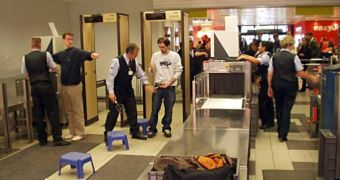Just before the H1N1 swine flu influenza outbreak started in Mexico, a large number of aviation officials from the International Civil Aviation Organization (ICAO) were supposed to meet in the country, and, ironically, discuss a new set of measures to be employed in case of an outbreak. As ICAO's Tony Evans said, the coincidence was simply mind-boggling, and officials plan to meet again in June, to discuss the CAPSCA initiative, which basically refers to a set of measures that will be employed worldwide, to stop this kind of situation from ever happening again.
Thus far, efforts of a unified global defense against the action of extremely dangerous pathogens have been in vain, mostly because poor and underdeveloped areas of the world, such as a large part of Asia, Africa, South America and the Pacific, have been unable to cooperate with western countries. This happened on account of the lack of money, but the CAPSCA project has recognized the importance of such measures existing, and plans to make it a reality all around the world. One of the main reasons why airplanes are so dangerous is because they pack people from all around the world, and also because they can spread a disease anywhere on Earth within 48 hours from the pathogen's first appearance.
“When an aircraft arrives with a suspected disease case on board, CAPSCA will make sure you've thought about where you are going to park the plane, how you will deal with the luggage and how are you going to keep in touch with the passengers that haven't got any symptoms,” Evans added, quoted by NewScientist. Furthermore, the expert shared, the plans would also indicate the most appropriate course of action for authorities under any given conditions. The effort, the official explained, should be focused at the moment on developing new ways of discovering sick people before they got on the plane.
One possibility would be the development of cough sensors able to detect people with persistent symptoms anywhere in the airport. Experts from the Catholic University of Leuven in Belgium have already devised a software that can identify which individual is just clearing their throat, and which is clearly sick. The position of the sound source relative to the microphones could pinpoint the location of the citizen, who could then be brought in for analysis and treatment.

 14 DAY TRIAL //
14 DAY TRIAL //